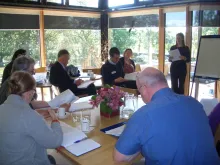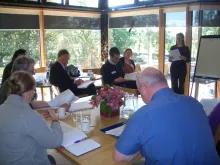Assessing impact of research on policy: a literature review
This review provides insights into how to evaluate the impact made by knowledge created by CREW activities and whether such impact leads to improved environmental, social and economic outcomes via evidence-based water management. It is widely recognised that impact is more likely to occur when research is co-constructed with research users and is designed with a specific context and use in mind.





